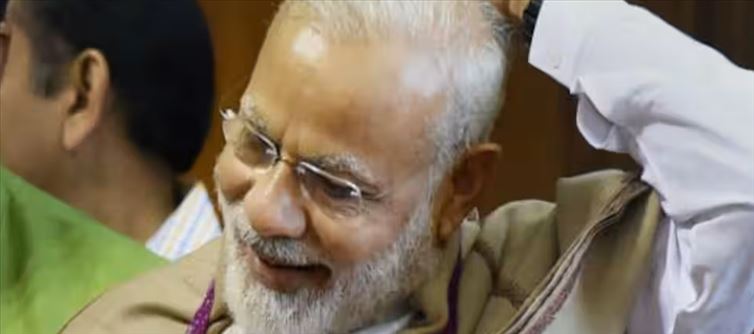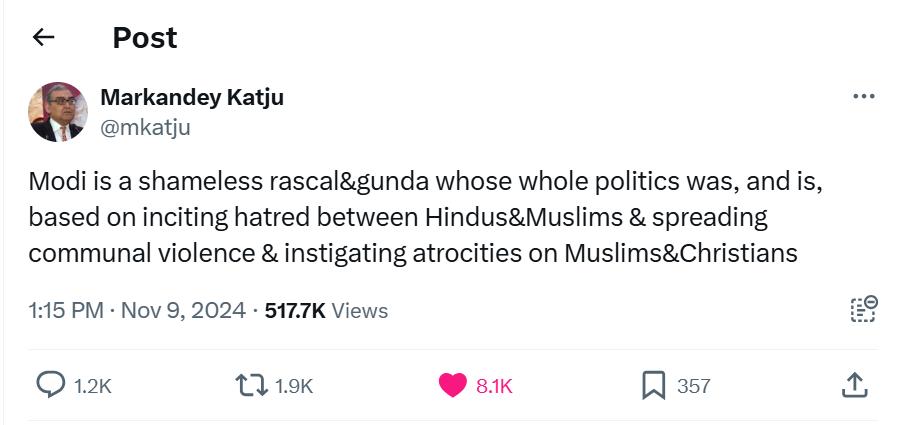
Former supreme court judge Markandey Katju's tweet about prime minister Narendra Modi stirred significant discourse within india, highlighting the polarized nature of indian politics. Katju’s comments, which label Modi as a “shameless rascal” and accuse him of inciting communal hatred, touch on the deeply sensitive topic of religious division in India.
His statement suggests a belief that Modi’s political approach has relied on stoking tensions between religious communities, particularly between Hindus and Muslims. By emphasizing communal violence and atrocities, Katju reflects a view held by some who believe that certain political strategies may exploit religious identity and historical grievances to consolidate support. Given Katju’s stature as a former supreme court judge, his words resonate broadly, lending a powerful voice to Modi’s governance approach critiques.

This statement from Katju also underscores the broader challenges india faces in balancing secularism and religious diversity within its democratic framework. india, home to a rich tapestry of religions, has historically valued secular principles. However, the past decade has seen growing concerns from some groups and observers over rising communal incidents, where political discourse around religion is often charged. Katju’s remarks reflect these anxieties, positing that policies or rhetoric could be perceived as prioritizing one community over others or failing to adequately address religious tensions. His criticism echoes concerns among those who argue that minority communities, particularly Muslims and Christians, have felt increasingly marginalized or vulnerable due to perceived government inaction or, in some cases, perceived encouragement of divisive ideologies.




 click and follow Indiaherald WhatsApp channel
click and follow Indiaherald WhatsApp channel